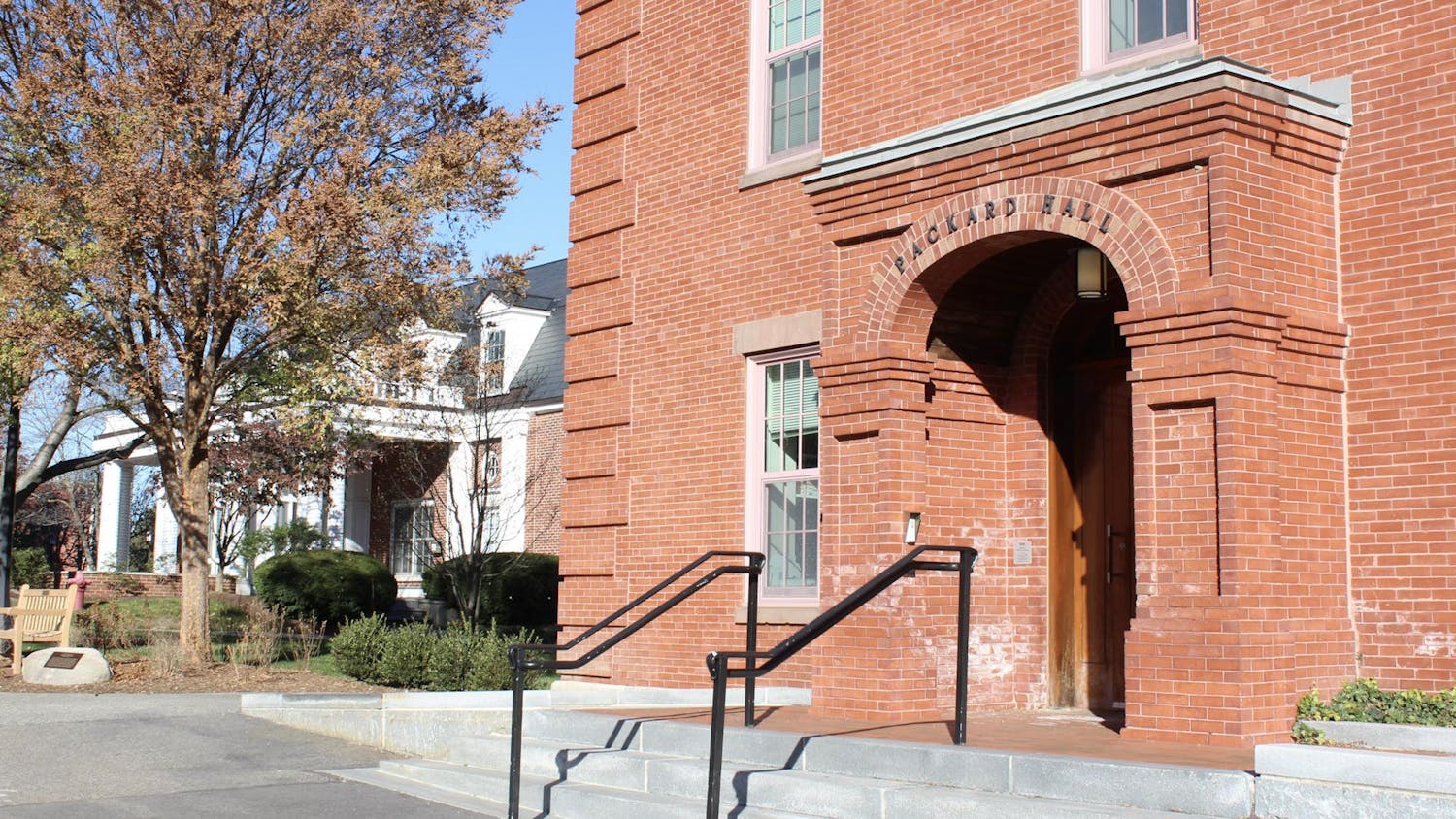Fresh off a successful launch last year, the University Advancement Division's Student Ambassadors Program will nearly double in size this year and conduct four times as many alumni interviews.
The advancement office emp-loys the student ambassadors to interview alumni about their experiences at Tufts, their perspectives on the university's direction, and their thoughts about what Tufts could do to help alumni remain connected to the school, according to Chris Simoneau, the director of central development programs.
Last year, eight ambassadors conducted 50 interviews, mostly in the Boston area. This year, the program will hire at least 15 people, and it is aiming to talk to 200 alumni.
Simoneau said the interviews' sole purpose is to allow alumni to connect with students and provide feedback. Ambassadors do not solicit money or propose new projects to the alumni.
"The bottom line is we don't want to dictate to alumni the programs and messages that we want, but [would rather hear] what they want," Simoneau said. "We're on a listening tour, so to speak."
According to Simoneau, the program borrows ideas "liberally" from a Georgetown University program by the same name, a part of that school's overarching alumni outreach program, the Discovery Initiative.
Corey Barr and Nancy Gram-olini, co-coordinators of the Tufts program, heard the president of Georgetown speak about the program at a conference and presented the idea to the Tufts advancement office. The Georgetown program was created in spring of 2006.
"It started because George-town, like many schools, was thinking about how we can broaden our base," said Tim Foley, program manager of the Discovery Initiative. "You have a lot of people that feel positive about Georgetown," but that don't necessarily have an ongoing relationship after graduation, he said.
The Georgetown program boasts 60 student ambassadors, who conduct interviews on a part-time basis, and a few recent graduates who interview full time. All together, the ambassadors average about 1,000 interviews per year.
Whether Tufts' program will reach the size of its Georgetown counterpart depends in part on its ability to obtain funding. It is continually seeking to expand, Barr said.
"First, we'd like to start meeting with alumni from the different [graduate] schools [and to] expand geographically," he said.
While school is in session, students are limited to interviewing alumni in the Boston area, but Barr hopes they will also be able to conduct interviews while at home on breaks.
Junior Adam Frank, who became involved in the program in January after receiving an e-mail from Barr and Gramolini, is a standout among student ambassadors.
Frank conducted 40 interviews this summer, most of which took place in Fairfield County, Connecticut.
"I really liked meeting a ton of different people," said Frank, who has interviewed a range of alumni, from the Class of 1945 to the Class 2001. "The experiences are just so different."
This diversity in the range of alumni's backgrounds bespeaks the systematic formula the University Advancement Division uses in selecting interviewees. Working within geographical constraints, the office targets alumni who have fallen out of communication or who have consistently not responded to invitations to events.
Ambassadors have conducted interviews with 20 percent of the selected alumni, compared to Georgetown's 15 percent success rate, Barr said.
Alumni interviewees first receive a letter inviting them to participate in the program, then a call from an ambassador. "A lot of people I can never contact" due to a wrong number or alumni failing to returning calls, Frank said. For those he does get in touch with, "the reception is good."
Sometimes, alumni will offer very specific suggestions on how they would like to stay connected to the university.
"One woman wanted us to form a knitting club," Simoneau said.
Simoneau reports receiving positive feedback from alumni about the Student Ambassadors Program, and about their alma mater.
His findings match what other ambassadors have reported. Out of 50 interviews last semester, Simoneau estimates that there were only one or two alumni who had mostly negative thoughts about the school. "We still learned from them," he added.





